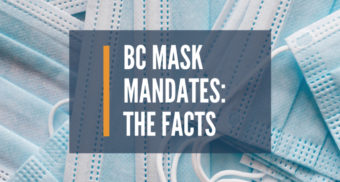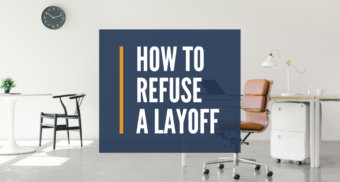10 days paid sick leave could be costly – Global News

Federal government’s paid sick day plan
The federal government is exploring the idea of creating a program amid the coronavirus pandemic that would provide 10 paid sick days for workers across every province and territory in Canada.
Global News spoke to Lior Samfiru, an expert on employment law in Canada, about the feasibility and impact of such a program.
Decision by the provinces
Samfiru, employment lawyer and co-founding partner at Samfiru Tumarkin LLP, told Global News that the federal government “can’t actually do anything” in terms of implementing a program, as most of the country’s employees are governed by individual provinces.
“It would really be up to the provincial government to implement this,” said Samfiru.
Financial burden on employers
He also noted that while the provincial government can mandate it, the costs associated with a paid sick day program would have to be burdened by employers.
“it seems to me that with the current economic situations and businesses struggling, trying to impose another obligation like that on an employer could be problematic,” said Samfiru.
Samfiru mused that employers may end up cutting employees’ pay or benefits to make up the cost, which is not “really something that benefits employees in any way.”
How it could work
The federal government could lend financial support to any provinces who do decide to move forward with a new paid sick day policy. Those provinces could then share that support directly with businesses.
“For example, if I’m an employer and I choose to provide my employees with paid sick days, then I may get a financial break maybe on my taxes from the government so that I have an incentive to offset the cost,” he explained.
Update EI program instead
Samfiru told Global News that a solid alternative to creating a 10 day paid sick leave policy would be to update the existing employment insurance (EI) program.
An employee who is sick or ill for seven days can qualify for EI for up to 15 weeks. This option comes with a one week waiting period.
READ MORE:
COVID-19 and Employment Insurance Benefits
Employment lawyer on EI benefits and COVID-19
“One of the things the government can do is waive that one-week period so that if I’m sick for the next three days and I cannot work, I can qualify for EI,” he said. “I may not get my full income, but at least I’ll get some compensation.”
This approach would spare employers from spending money on expanded employee benefits. It would, however, need to be paid for using tax dollars.
Read the entire article, including comments from a leading economist, here on GlobalNews.ca
Learn more about your rights during the coronavirus pandemic through our Coronavirus (COVID-19) Knowledge Centre, where you can find resources about your employment rights during COVID-19.




